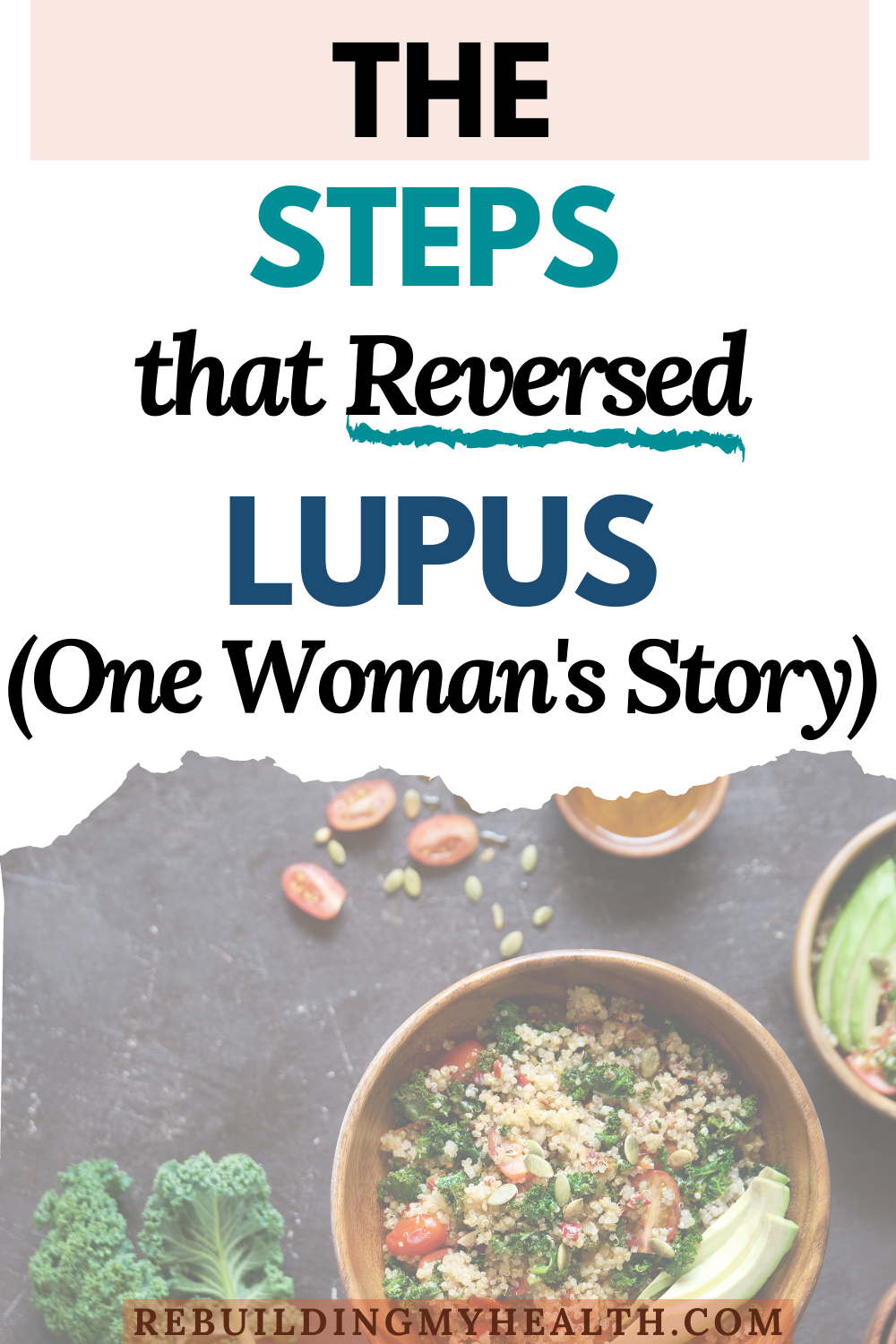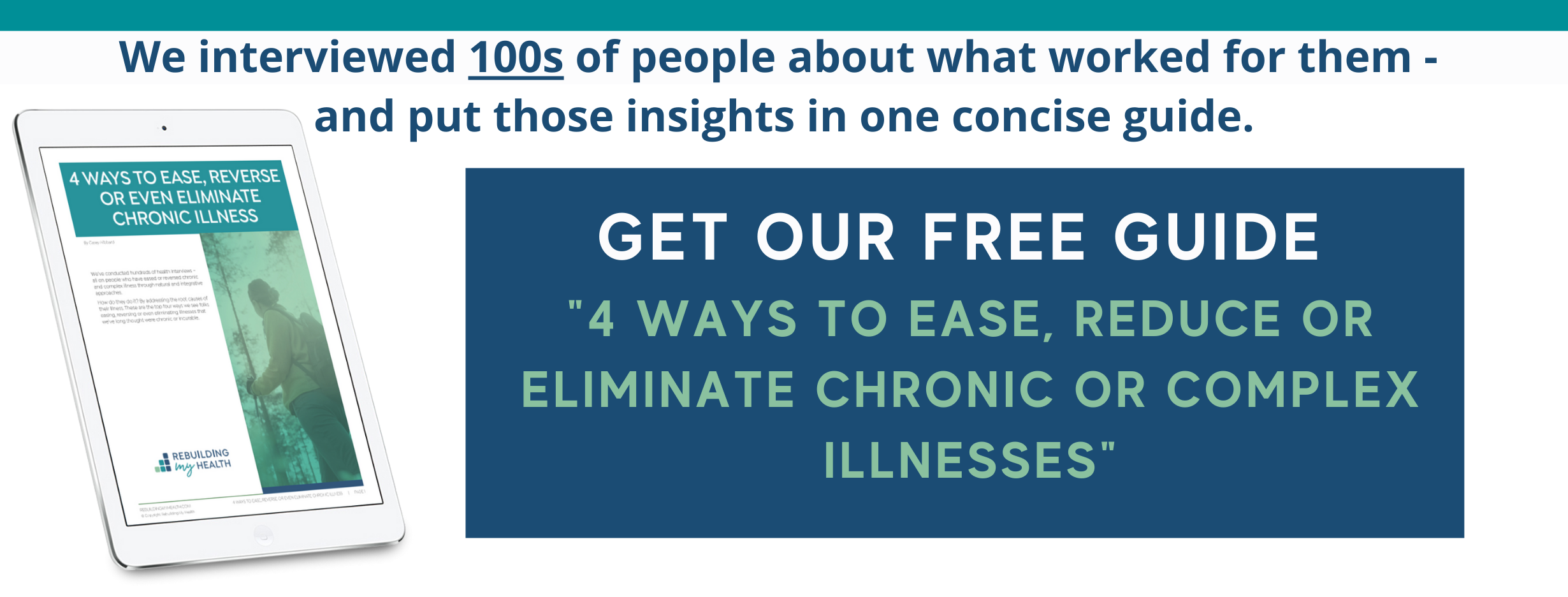After a Lupus Nephritis Diagnosis: Diet, Lifestyle are Key to Stopping Pain, Fatigue
“I tell any person who has autoimmune issues that they need to be off gluten. Hands down, it’s helped everybody I know.”
– Margaret Romero
At the age of 35, Margaret Romero received a stunning prognosis: she would likely end up on the kidney transplant list within five years.
For this active, health-conscious nurse practitioner, the news seemed impossible. At the time, Margaret practiced yoga, took spin classes, lifted weights, hiked and – she thought – ate healthfully.
But despite all that, what began as occasional joint pain quickly accelerated to weakness and fatigue, until finally, she ended up in the hospital.
A slew of tests uncovered blindsiding news. She had abnormal liver function, inflamed kidneys, an enlarged heart, pleurisy of the lungs and severe brain fog.
The Santa Fe resident was quickly admitted first to an Albuquerque hospital and then on to Phoenix for more advanced care via medi-flight.
Further testing revealed a diagnosis: lupus nephritis, an autoimmune disease that causes inflammation in the kidneys, and at times, kidney failure.
Margaret traveled to Boston to be nearer to family and was hospitalized at Massachusetts General. A kidney biopsy uncovered significant kidney damage. On top of it all, doctors had severed her psoas muscle during the kidney biopsy, leading to a hematoma, excessive blood loss and a blood transfusion – leaving her needing around-the-clock care.
“I was in so much pain,” she says. “I couldn’t get in and out of bed, off the toilet, out of a chair. I gained 30 pounds of water weight. My hair was falling out. Despite being on 20 pills a day I felt no better. I was like, ‘This can’t be.’”
“They were telling me that I would probably need a kidney transplant in the future, and that I would never be able to be in the sun again, which was like a lifetime prison sentence,” Margaret adds. “I needed to find it within me to prove the doctors wrong.”
And find it she did. Resolved, Margaret took charge of her health – and turned it around. She ordered the genetic test to check for celiac disease despite her rheumatologist’s disapproval. Today, she has virtually no symptoms of lupus nephritis. The key was discovering an unexpected connection between her diagnosis and her diet.
A Life-Changing Decision: No More Gluten
Margaret’s illness had come seemingly out of nowhere. But a discovery she made on her own started to unravel the mystery.
Soon after eating a meal, her joints would become red and swollen, and she felt worse. She suspected gluten sensitivity.
When she asked her rheumatologist for a celiac test, the specialist didn’t agree. “She told me not to waste my money,” Margaret recalls.
Instead, Margaret ordered and took the test on her own, and found she had two non-celiac, gluten-sensitive genes. That was enough for Margaret to make a simple, but life-changing decision.
“From then on, I became gluten-free and I haven’t looked back since,” she says. “That literally changed my life. It changed the course of everything. Within a week, my joints stopped hurting.”
Eliminating wheat gluten was just the beginning of her healing. It would ultimately take two years of hard work to get back her health and energy.
Gut Issues the Precursor to Lupus Nephritis?
Through research, Margaret realized that her illness had likely been simmering under the surface for years. She had long suffered from digestive problems, which she believes triggered the inflammation that possibly led to lupus nephritis.
Margaret discovered she had bacterial overgrowth and intestinal permeability, also known as leaky gut syndrome. This occurs when the tight junctions of the intestinal walls break down, allowing food particles to enter the bloodstream and leading to an immune reaction to foods.
“It went from a bad case of constipation to muscle and joint pain to blood in my urine to a full-on inflammatory process that was happening throughout my body,” Margaret says.
Research has linked autoimmunity to gluten sensitivity. Alessio Fasano, a leading celiac researcher, keeps peeling back layers of the onion. Through studies, he has found that gluten contributes to intestinal permeability.
He notes: “In many cases, increased permeability appears to precede disease and causes an abnormality in antigen delivery that triggers the multiorgan process leading to the autoimmune response.”
Back to Health
Through exhaustive research, and experimentation, Margaret arrived at the right mix of diet and supplements that worked for her.
She removed grains, gluten and dairy from her diet, helping her gut heal over the course of a couple of years. She started supplements to maintain healthy digestive and immune function. Among the most critical, in her opinion, were probiotics, vitamin D, B complex, digestive enzymes and support for her adrenal system.
While she once worked 70-hour weeks, she began to lower her stress levels with yoga, meditation, hiking and plenty of sleep.
“I believe stress was an additional thing that broke down my body,” she says. “Now I maintain a healthy lifestyle and practice a lot of self-care. Downtime is really important for me – making space for myself to read or watch a movie, take a hot bath or see friends.”
As for her lupus nephritis symptoms, they are effectively gone – along with the heavy prescription medications she once took.
“I have zero of the symptoms I started with,” she says. “Pain and fatigue are no longer part of my life anymore thankfully. I feel very strong and I have energy. I tell any person who has autoimmune issues that they need to be off gluten. Hands down, it’s helped everybody I know.”

A New Purpose
Now 46, Margaret is full of energy and dedicated to helping others take back their health and lives.
Inspired by her podcast, Sacred Medicine Podcast, she recently opened Femme Med, a whole-health sanctuary for women in the middle of New York City. There, she blends her background of functional, holistic medicine, with sexual health to serve women with a more holistic approach.
She’s also passionate about helping others with lupus to find the road back to healing with her Overcoming Lupus: A Foundational Course program.
Margaret also reached out to her alma mater, Columbia School of Nursing, to teach the school’s first-ever “Integrative Medicine” course.
Once a life sentence, her lupus nephritis diagnosis is now seen as a gift. Margaret has a true sense of purpose.
“It’s certainly been a journey for me, but I don’t regret any of it,” she says. “It’s put me on the path to healing myself and others who have autoimmune issues. I want people to know that, even though your doctor gives you a prognosis, that that does not need to be a reality. I’m a living testimonial that this is true.”
Learn more about Margaret and follower her on Instagram via @margaretromero.
Find more details about Margaret’s path to wellness.
The information on this site is for educational and inspirational purposes only and is not intended to replace the advice of qualified professionals. Keep in mind that what works for one person may not work for another. Always consult your healthcare practitioners before beginning new approaches or treatments. Some links on Rebuilding My Health may be affiliate links. This means that we may receive a commission - with no additional cost to you - if you make any purchases using those affiliate links. Rebuilding My Health is a participant in the Amazon Services LLC Associates Program. Learn more.


